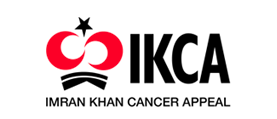The best way to fight cancer is to prevent it. While doctors have some idea of what can put you at risk of cancer, every case of cancer often has many factors involved, which suggests that there is no single cause for any one type of cancer.
Furthermore, cancer can occur in people who don’t have any known risk factors. With that said, to prevent cancer it is important to maintain a healthy lifestyle and avoid factors known to increase the risk of cancer. Some of these can be found below.
Particular lifestyle choices are also known to increase the risk of cancer. Some common factors include: excessive smoking and drinking; a poor diet; too much exposure to the sun or frequent blistering sunburns; and unsafe sex. A growing number of specialists in cancer control research believe that chemicals present in food (and the environment), often in the form of food additives, cause 70% of cancers.
People who work in certain occupations carry a higher risk of developing cancer. This is because certain jobs expose workers to carcinogenic materials, chemicals or natural and man-made radiation. Current evidence shows that there is no safe threshold level for a carcinogenic chemical.
Exposure to environmental carcinogens increases the risk of cancer development, so where you live can affect your health. Some of these carcinogens, like aflatoxins and nitrosamines, are very potent. Others, like atmospheric pollutants and particular pesticides, are weaker. However, weaker carcinogens are no less dangerous than the potent ones. Often they aren’t implicated because their effects escape detection by conventional biological tests and in this way, they can end up doing more damage.
About 10% of cancers are due to an inherited condition. If cancer is common in your family, it’s possible that mutations are being passed from one generation to the next. If this is the case in your family, you might be a candidate for genetic screening. A screening will allow you to see whether you have inherited mutations that might increase your risk of cancer.
Do bear in mind that having an inherited genetic mutation doesn’t necessarily mean you’ll get cancer, because a cell must undergo a number of genetic mutations before it becomes cancerous. However, statistically, inheriting one mutation from the start makes a person more likely to develop cancer. This is called genetic predisposition.
Some chronic health conditions, such as ulcerative colitis, can markedly increase your risk of developing certain cancers. Additionally, people with weak immune systems are also more likely to get certain types of cancer. One of these types are cancers caused by viruses, like cervical cancer, liver cancer, and stomach cancer. The other type includes lymphomas.
- Limit your consumption of fat to 30% of your daily calorie intake. Also limit saturated fats (from animal products, such as butter, eggs, meat and regular milk).
- Cut down on red meat and boost your consumption of fruits and vegetables. Research suggests that fruit and veg which are rich in folic acid (blackberries, raspberries, asparagus); as well as carotenoids and flavonoids (carrots, apricots, tomatoes, melons, mangoes, papaya, pink/red grapefruit) can reduce risk of cancer. Folic acid is believed to protect against cervical and prostate cancer while carotenoids and flavonoids have been shown to help protect tissue from free radical damage.
- Maintaining a healthy weight is vital. Numerous studies have shown that obesity increases the risk of some cancers. Studies also suggest that reducing your calorie intake increases life expectancy and delays age-related diseases.
- Quit Smoking and avoid exposure to passive smoke.
- Quit or reduce your alcohol intake. Excessive alcohol consumption has been proven to cause cancer of the oesophagus, mouth cancer, liver cancer, breast cancer, and larynx cancer.
- Though it’s important to avoid sun-burn and excessive sun exposure, some exposure to the sun is necessary for Vitamin D formation. Vitamin D is essential for strong bones. It is also believed to help in preventing certain cancers.
- Avoid exposure to bleach/chlorine, thinner, paint, and other toxic fumes. If you are exposed to these, eating yoghurt has been suggested as a good way to clear out the system.
- Get regular exercise. At least 10 minutes of brisk walking, daily, is beneficial to your health.
